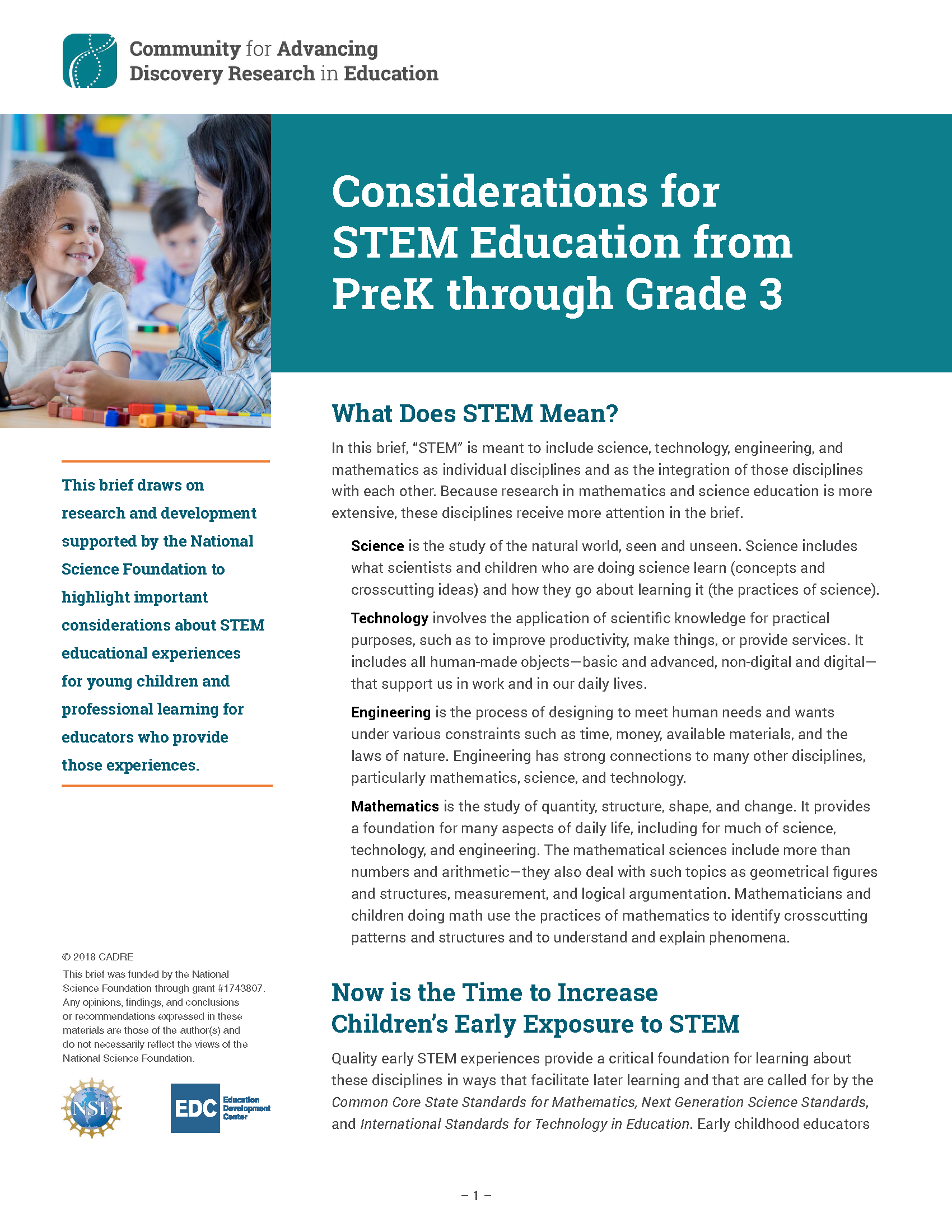Quality early science education is important for addressing the low science achievement, compared to international peers, of elementary students in the United States. Teachers’ beliefs about their skills in a content area, that is, their content self-efficacy is important because it has implications for teaching practice and child outcomes. However, little is known about how teachers’ self-efficacy for literacy, math and science compare and how domain-specific self-efficacy relates to teachers’ practice in the area of science. Analysis of survey and observation data from 67 Head Start classrooms across eight programs indicated that domain-specific self-efficacy was highest for literacy, significantly lower for science, and lowest for math. Classrooms varied, but in general, engaged in literacy far more than science, contained a modest amount of science materials, and their instructional support of science was low. Importantly, self-efficacy for science, but not literacy or math, related to teachers frequency of engaging children in science instruction. Teachers’ education and experience did not predict self-efficacy for science. Practice or Policy: To enhance the science opportunities provided in early childhood classrooms, pre-service and in-service education programs should provide teachers with content and practices for science rather than focusing exclusively on literacy.
Now more than ever, scientific literacy (i.e., systemizing methods, engaging in critical comparison, utilizing research to inform practice) has been recognized as vital for the 21st-century workforce (National Research Council, 2010 National Research Council. (2010). Exploring the intersection of science education and 21st century skills: A workshop summary. National Research Council. Washington, DC: National Academies Press). Strong science education is critical for developing these skills in the U.S. population. However, U.S. elementary children perform below several of their international peers in science achievement tests (National Center for Education Statistics [NCES], 2012). This is not surprising considering that the foundation for scientific understanding is shaky: Elementary teachers spend just 6% to 13% of their instructional time teaching science (NCES, 2012 National Center for Education Statistics. (2012). The condition of education 2012. Retrieved from
http://nces.ed.gov/pubs2012/2012045.pdf), and preschool teachers devote even less time (4%–8% of instructional time) to promoting science experiences (Tu, 2006 Tu, T. (2006). Preschool science environment: What is available in a preschool classroom? Early Childhood Education Journal, 33, 245–251. doi:10.1007/s10643-005-0049-8). A primary factor, particularly among early childhood educators, is a lack of preparation for designing and implementing science education, which results in little confidence for teaching science (Greenfield et al., 2009 Greenfield, D. B., Jirout, J., Dominguez, X., Greenberg, A., Maier, M., & Fuccillo, J. (2009). Science in the preschool classroom: A programmatic research agenda to improve science readiness. Early Education & Development, 20, 238–264. doi:10.1080/10409280802595441; Hamlin & Wisneski, 2012 Hamlin, M., & Wisneski, D. B. (2012). Supporting the scientific thinking and inquiry of toddlers and preschoolers through play. Young Children, 67, 82–88). Of course, children are unlikely to develop necessary science knowledge and skills without effective science instruction and experiences (Gelman & Brenneman, 2012 Gelman, R., & Brenneman, K. (2012). Classrooms as learning labs. In N. Stein & S. Raudenbusch (Eds.), Developmental science goes to school (pp. 113–126). New York, NY: Routledge; Morris, Croker, Masnick, & Zimmerman, 2012 Morris, B. J., Croker, S., Masnick, A. M., & Zimmerman, C. (2012). The emergence of scientific reasoning. In H. Kloos, B. J. Morris, & J. L. Amaral (Eds.), Current topics in children’s learning and cognition (pp. 61–82). Rijeka, Croatia: InTech). Thus, one critical research aim fulfilled by the present study was to describe early childhood educator self-efficacy for science and identify how self-efficacy is related to the science opportunities provided in early childhood classrooms.
